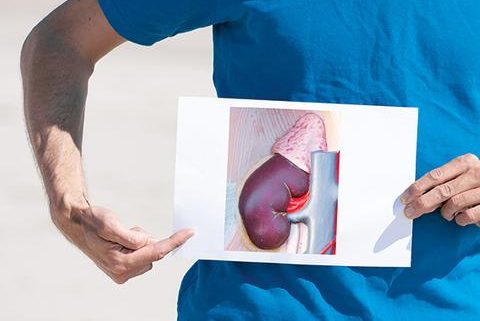Kidney damage and kidney disease are progressive and hard to spot; if you’re at risk, get checked.
By Katrina Caruso
For the most part, keeping your kidneys healthy requires a healthy diet and exercise, but if it’s that simple, why do one in 10 Canadians have kidney disease and why are the numbers rising, especially among those 55 or older? The answer is that the things that can cause kidney disease—obesity, diabetes, chronic high blood pressure, heart disease—are also on the rise.
More than three million Canadians suffer from chronic kidney disease, a condition that’s hard to spot and that gets worse over time. As the kidneys are responsible for detoxifying the blood, along with maintaining blood pressure and other important functions, it’s imperative that we take care of these small but mighty organs.
Tips for Kidney Health:
Get moving: Exercise helps to keep your blood pressure in check, which will put less strain on the kidneys. Whether you walk, run, or cycle, your kidneys will thank you.
Monitor your blood sugar level: Roughly one of every two people with diabetes will end up with kidney problems. Those with diabetes should be extra vigilant about their blood sugar levels.
Watch your blood pressure: Kidney damage can be caused by high blood pressure. Make sure your doctor is on top of your BP.
Eat well: If you want to be kind to your kidneys, eat a low-sodium diet. Keep an eye on your weight, too.
Drink water: Drinking between 1.5 and 2 litres of water a day helps the kidneys detox the body.
Quit smoking: If you smoke, blood flow to your kidneys will be affected, and without an adequate supply of blood they can’t function properly. Smokers are also 50% more likely to get kidney cancer.
Go easy on the ibuprofen: Be careful not to consume too many over-the-counter anti-inflammatory drugs—they can lead to kidney damage if taken too frequently. If you take these pills for chronic pain, talk to your doctor about an alternative.
Finally, if you know that you have diabetes or high blood pressure, or you’re obese, have your kidney function checked.
Photo: iStock/Natali_Mis.




